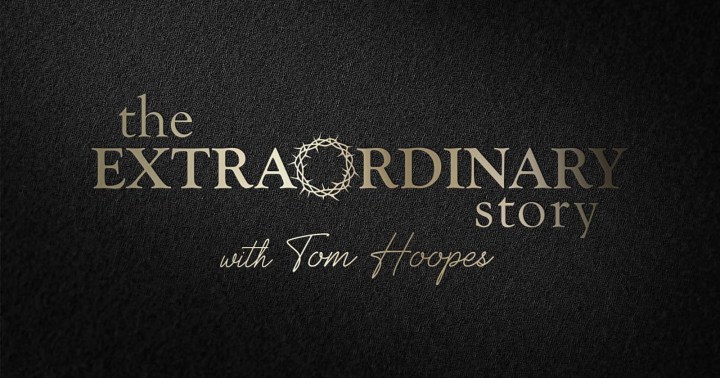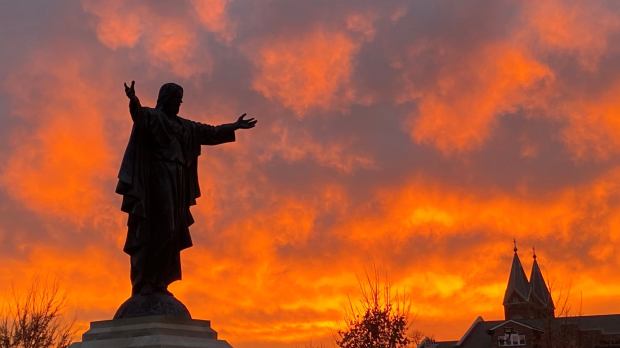I am working on a project about the “Extraordinary Story” that Christ’s life tells. A story not just about his life, but also about mine, and yours.
When I first started to take Jesus Christ seriously, I devoured Life of Christ books, and I loved the different approaches they took. Fulton Sheen’s and Alban Goodier’s were devotional, saying, “Isn’t he amazing?” Frank Sheed’s and Romano Guardini’s were theological, saying, “Look at his depths!” Some reveled in the Holy Land and history, saying “Here’s exactly what he saw and did” Others grappled with skeptics’ complaints and said “Aha! But his claims are true!”
Life of Christ books led me to read the Gospels, daily, where I began developing my own Christ-centered understanding of the universe — or my personal universe, at any rate.
In my 20s, I developed the maxim: “The four Gospels have the answer to every problem in life.”
I was constantly testing that maxim in my own life, and with anyone who shared a problem with me. “To figure out what to do, look at the advice Jesus gives — but more importantly, look at what Jesus does. How he acts and reacts.”
This worked for everything from family squabbles (see Martha and Mary, the man with the inheritance, and others) to troubles at work (see the parable of the vineyard workers or the unjust steward). He delivered the goods on romance (his “leave and cleave” advice and warning about lust) and even travel (travel light!).
But then, life got tough, and the Gospel answers grew awkwardly silent.
When I faced my mother’s slow, dehumanizing death by A.L.S., my old Gospel answers started feeling unsatisfying. When the clergy sex abuse scandals hit my community, hard, the answers started feeling wrong.
That was the first of a number of faith crises I would face as my life reached more maturity and my faith strained to keep up. Deeper questions started to show up, underneath the superficial ones I faced before.
I knew the Church had told me “You can accept evolution if you want, or bracket it off if that makes things easier.” Suddenly, I found I couldn’t bracket it any longer.
I was discovering things about the human brain, and the strange maladies it can suffer, changing the way it perceives the world. I was also learning amazing things about animal brains, and how animals use tools, to communicate, self-sacrifice, and more.
I began to ask: What is so special about human beings?
I got an invaluable gift by working at Benedictine College, giving me a floor full of theologians to bother.
I would sit down in a theologian’s office, say, “Do you have a sec?” and then pummel them with questions. One day, it was the efficacy (or not) of baptism: “Just what does it do, anyway? And why does it seem to do so little in so many people?” Another day, it was the meaning of the redemption: “Why did he need to ‘redeem’ us if he is already the Lord of all?”
Above all, I wanted to know about St. John Paul II’s (and Vatican II’s) phrase “Jesus Christ reveals man to himself.” That sounds nice. But what does it mean? How come, in my life, it doesn’t feel at all like that actually happens?
Questions about personal identity began to take the foremost place in my mind.
One after another, the world seemed to be dropping all the old ways of answering the question, “What makes human beings human?” and “What makes me, me?”
I began reading voraciously on the subject, from every angle: evolution, neuroscience, consciousness, epigenetics. I greatly benefited from having two leading Catholic scholars on such questions — theologian Matthew Ramage and philosopher James Madden — within 100 yards of my office.
The result is “The Extraordinary Story,” a podcast, for now, that goes through Christ’s life in order and asks of each event: What does this say about what it means to be human, and what does it say about what it means to be me?
All of that is a tall order, and I’m still struggling with these questions.
But in 11 episodes so far, I think I have come up with at least a few helpful directions this ongoing inquiry can take. Check out “The Extraordinary Story” — find the angsty first episode here — to see what I’ve come up with, for now.




